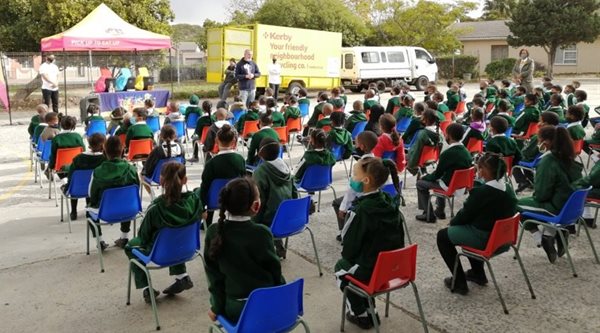
Top stories






More news


Marketing & Media
Ads are coming to AI. Does that really have to be such a bad thing?














This year, following a successful pilot run with 10 schools, Ineos is expanding the project to an additional 20 schools in Phillipi, Belhar and Nyanga in Cape Town, Western Cape.
In return for the most recyclable waste collected, learners are rewarded with exciting treats, while schools stand a chance of winning their share of R60,000 in prize money to upgrade their facilities.
Ineos Trash 4 Treats aims to demonstrate to young learners from low-income households that recyclable waste has value and motivates them to keep their environment clean in return for rewards through games, educational videos and a colourful recycling mascot, Trashy.
The project pairs schools with local waste collectors who buy back the waste collected on-site, creating a mutually beneficial relationship that benefits the community.
“Not only are we encouraging learners to care for the environment from a young age but we also hope to plant the seeds for circular economies in the communities that we reach. When the learners start receiving rewards, they are driven to recycle more and can share their learnings with family and friends,” says Ursula Heath, communications manager at Ineos.
Teachers at each school also receive pre-awareness hampers with food items in glass, metal, paper and plastic packaging to demonstrate the different types of substrates that can be recycled. Bags of different colours are also provided to learners to sort their recyclable waste and place it in the bins provided at school.
The project uses edutainment in the form of an audio-visual presentation and a magician who performs magic tricks using packaging to teach recycling and launch the competition at each school.
To date, the project has engaged with 33,000 learners and recycled 22,000kg of waste. Heath says that they are keen to find South African partners to help expand the project’s impact even further.
“The opportunity offers a viable solution for organisations looking to become compliant with the Extended Producer Responsibility legislation, which will come into effect later this year, and allows them to help inspire the responsible consumers of the future,” she concludes.